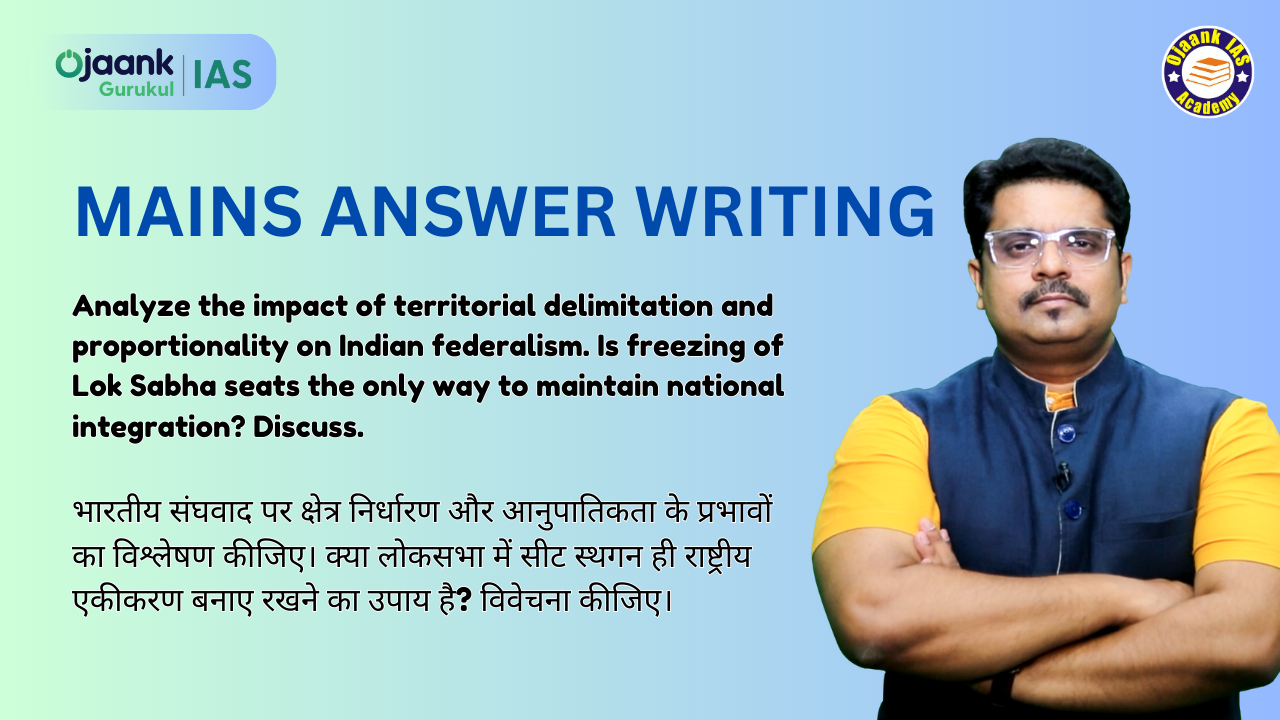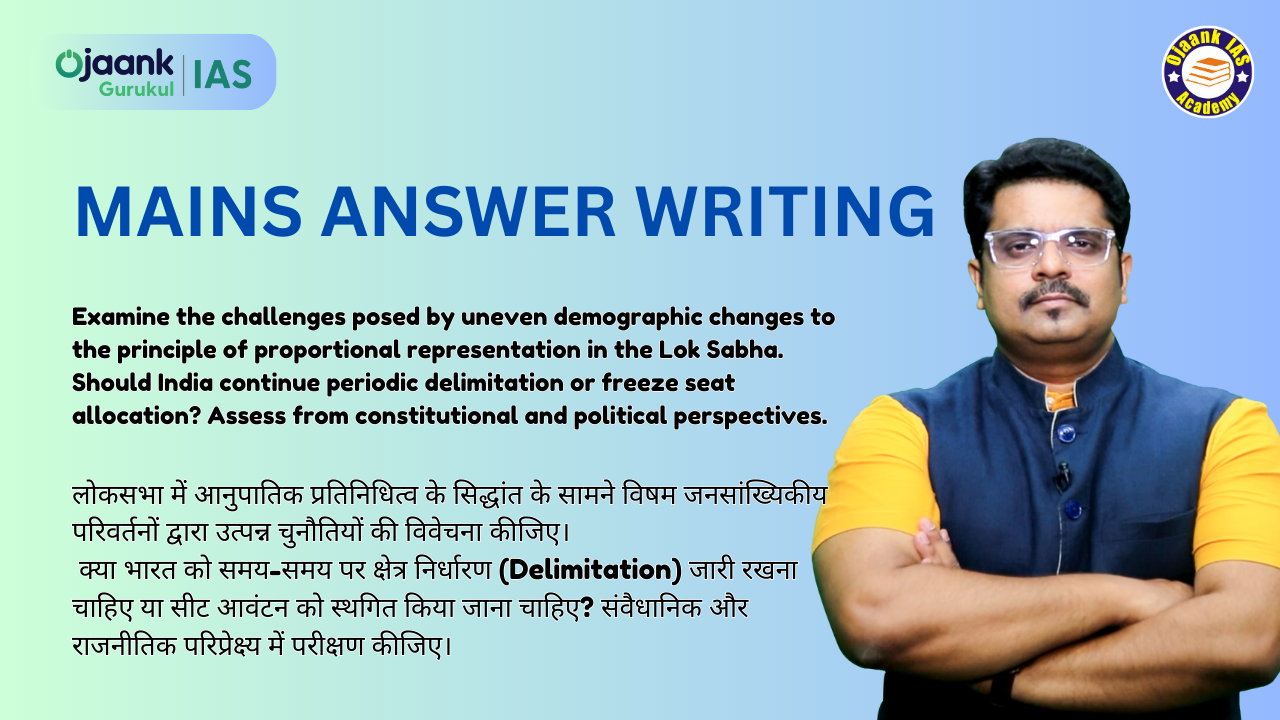Analyze the impact of territorial delimitation and proportionality on Indian federalism. Is freezing of Lok Sabha seats the only way to maintain national integration? Discuss.

Introduction:
In a federal structure like India, population-based representation can significantly influence the federal balance. Repeated delimitation exercises may result in certain states gaining disproportionate power.
Impact on Federal Balance:
1. Risk of Unequal Representation:
States with higher populations could end up with more seats, politically marginalizing southern and northeastern states.
2. Fear of Political Imbalance:
States that have successfully implemented family planning measures are being "politically penalized" for controlling population growth.
Constitutional and Policy Support:
1. 84th Amendment (2002):
The Union Government clarified that states succeeding in population control should be rewarded, not punished.
2. Increase in Size of Council of Ministers:
As per Article 75(1A), the number of ministers is capped at 15% of the total Lok Sabha strength. An increase in the number of seats would raise administrative expenses.
Suggestions and Solutions:
1. Efficiency-Based Model Instead of Pure Numbers:
Representation can be determined using indicators such as:
-
Human Development Index (HDI)
-
Population Growth Rate
-
Health and Education parameters
2. Consensus-Based Democracy:
For national unity, all states must be provided equal political space and voice.
Conclusion:
A delimitation exercise solely based on proportional representation may pose a challenge to Indian federalism. Therefore, freezing Lok Sabha seats can be seen as a strategic and equitable decision to prevent federal imbalance and to uphold national integration.
Copyright 2022 power by Ojaank Ias





